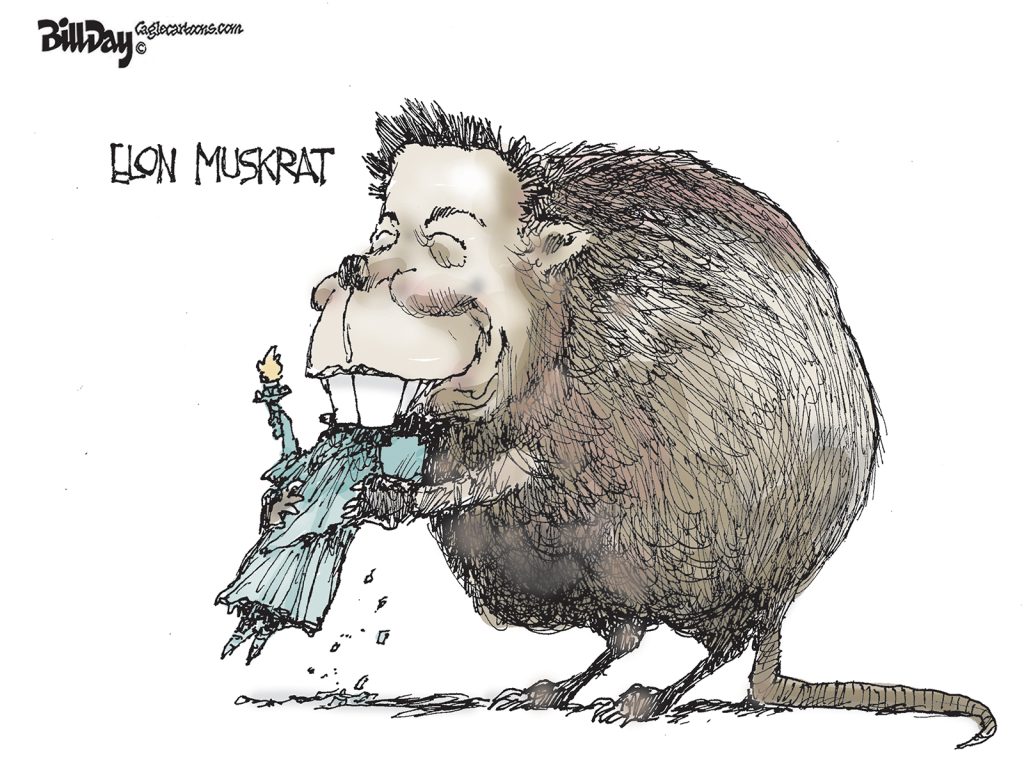Revenue-starved governments are setting sights on ways to get taxes from hospitals and private universities.
That why a lot of people are watching closely a bill proposed in Maine that would tax a variety of nonprofits, and as expected, it’s created a huge political firefight as the organizations treat the idea as the end of Western civilization as we know it.
There are some nonprofits that are already paying voluntary PILOTs (payments-in-lieu-of-taxes) that are negotiated with governments as a way to mitigate the costs of the services they receive and to defuse calls for broader taxation.
Here, the City of Memphis Five-Year Strategic Fiscal and Management Plan recommended voluntary PILOTs for major nonprofits that would generate $10 million over five years to offset the lost revenues that results from Memphis’s large number of tax-exempt properties, which are a combination of those owned by churches, hospitals, colleges and universities, and a variety of nonprofit organizations. This doesn’t include the hundreds of properties in Memphis that pay reduced tax bills as a result of a PILOT by EDGE or the Center City Revenue Finance Corporation.
All in all, voluntary PILOTs, seem a modest injection of revenues for a city that has 15,995 parcels that pay no taxes at all. That compares to 5,971 tax-exempt parcels in Nashville.
In June, 2012, Memphis City Council expressed interest in the idea of voluntary PILOTs and said it would appoint a committee to pursue it. But no action was taken.
Here a post from May 7, 2012:
Brown University announced this week that over the next 11 years, it would give the Providence, Rhode Island, city government $31.5 million to help deal with its budget crises. It is the latest example of a voluntary PILOT payment.
As we’ve written previously, several city governments are negotiating with their large nonprofit institutions for voluntary payments-in-lieu-of-taxes as a partial offset for the city services they receive but for which they pay no property taxes.
Providence Mayor Angel Taveras said the agreement represented “a renewal of our shared willingness to work together to make both Brown and Providence successful.” Under the agreement, Brown will pay the city an additional $3.9 million in the current fiscal year, which ends June 30, bringing to $8 million the university’s total annual contribution to municipal coffers.
As cities’ budget crises deepen, they are looking for new revenue sources and voluntary PILOT payments are getting more and more attention. Providence and Boston have looked for its private universities for the voluntary payments, and a proposal in Pittsburgh to charge a one percent tuition tax created a political firestorm and was abandoned.
A Little Help From My Friends
Also, last week, the Providence mayor announced an arrangement with Lifespan, a local hospital system, to pay $800,000 annually over three years. In February, Johnson & Wales University said it would give the city as much as $11.4-million over the next decade. The new payments are on top of $50 million that private colleges, including Brown and Johnson & Wales, pledged in 2003 to give to the city over 20 years.
The president of Brown University said: “Brown is deeply concerned about Providence’s financial situation and is committed to supporting efforts to enhance the city.”
Here, we all know about the oft-used PILOTs that waive $50 million a year in city and county property taxes for companies promising jobs and construction. Less know are PILOTs paid by utility companies, including MLGW, to Memphis and Shelby County in return for its tax-exempt status.
PILOT payments for nonprofits tend to be voluntary because of the considerable influence of tax-exempt institutions like Harvard University and Yale University, which pay their local governments $5 million and $7 million respectively. MIT, Princeton University, and the University of California at Berkeley pay more than $1 million.
Co-Pay
In addition, a number of the leading hospitals in the U.S. are making payments, such as Johns Hopkins which agreed to pay $10.4 million over four years in 2001 as an alternative to the city-proposed energy tax.
In Pittsburgh, a voluntary PILOT from University of Pittsburgh and Carnegie Mellon University was increased in return for the city’s elimination of a plan to pass a 1% tax on all tuition paid by college students. In some states, budgetary woes have sparked discussions in their legislative bodies, notably Hawaii and Georgia, about eliminating various nonprofits’ tax exemptions, but so far at least, it seems more like a shot across the bow to get the nonprofits to the negotiating table more than anything else.
The executive director of the Indiana Association of Cities and Towns said: “We’re having to look at the public services nonprofits use and how we can adequately cover those costs. We can’t give them away for free any longer.” That said, it’s no denying that the nonprofits themselves are hurting as a result of the recession, but looking for the time when financial trends get more favorable, more cities, counties and states are at least putting the issue squarely on the table.
There was a time when Philadelphia had the most aggressive “payments-in-lieu-of-taxes and services-in-lieu-of-taxes.” There, nonprofits owned 25.2% of city property with an assessed value of $3.1 billion, but they were exempt from $45.6 million in property taxes and $55.1 million in school district taxes. Under a program begun in 1994, 42 “voluntary contributions” agreements were negotiated, generating $2.9 million in cash and $3 million in contributed services to city government. The Philadelphia school district received $3.5 million in cash. However, payments winnowed down to less than $1 million a year after a state law calmed fears from the nonprofits that their tax-exempt status was at risk unless they paid the voluntary PILOTs.
Banking On It
Although payments are voluntary, city governments are certainly in a strong position to encourage them since they have authority over zoning, permitting, and code enforcement. Meanwhile, the nonprofits are consumers of public services, including roads, fire protection and law enforcement.
According to a report by the Lincoln Institute of Land Policy, nationwide, the tax exemption for nonprofits could total as much as $32 billion. The report – the most comprehensive account of PILOT programs in use – said that since 2000, 117 cities and 18 states have used PILOT programs to increase their revenues. While PILOTs remain a revenue source worth pursuing, it must be methodical and justifiable, correcting processes that have been haphazard, secretive and ad hoc.
Remember the anecdote about prolific bank robbery Willie Sutton being asked why he robbed banks. His answer: “Because that’s where the money is.” That too is why cities are targeting hospitals. Although they make up only 0.6% of the nonprofits registered with the IRS, hospitals account for 40.2% of the revenues and have 24.3% of the assets. By way of comparison, higher education makes up 0.4% of nonprofit organizations, generates 10.9% of revenues and holds 17.9% of assets.
Accompanying new interest in voluntary PILOTs for nonprofit hospitals is a renewed interest in determining if they are meeting states’ charitable standards. Already, this has produced rules in Utah requiring charity care plans, for publicizing the opportunity for charity care and for providing charity care commensurate with the value of their property tax exemptions. In a few places, there have been questions about why nonprofit hospital executives are making seven-figure salaries, but so far, that’s been a minor theme.
Tax-Exempt
The momentum behind this new interest in taxing nonprofits comes from city budget officials who face bleak options for the future. The National League of Cities reports that pessimism about meeting city fiscal needs is at its highest level and budget shortfalls are expected to worsen through 2012.
According to the Lincoln Institute study, nonprofits in Memphis have 1.9% of the total property value in Memphis, which seems low to us and we’re trying to double check it. The report characterized it as a rough estimate. We suspect it is low, but the bigger issue for City of Memphis is the vast areas of Memphis that do not produce any property tax revenues, the combination of tax waivers for businesses, nonprofit hospitals, and universities and colleges.
It’s getting harder and harder to balance City of Memphis budgets, and the fact that about 30% of Memphis is tax-exempt only compounds the degree of difficulty.
The case in support of the PILOTs is pretty direct: nonprofits should pay for the public services they consume. Based on the lessons of several cities, it seems that a carrot rather than stick approach could yield the best results. There’s little question to us that most of the nonprofits here that would qualify for a PILOT payment have well-developed civic consciences and an appeal to community responsibility is the best way to raise this subject with them.




Some nonprofits pay a lot of taxes. Frayser CDC currently pays $68,000 a year in property taxes on its houses. Only our offices are exempt, saving us perhaps $3,000. The real unscrutinized elephant in the room, in addition to the hospitals, is churches.
Too many nonprofits pay absolutely nothing in taxes. Churches, and religious affiliations are the very worst offenders.
I have always believed that the “using” non-profits churches, hospitals & care facilities, cultural entities not associated with government, private schools/colleges/universities and the like should be paying a PILOT which parallels their use of public services. Those that generate traffic, consistently use fire and police, tear up roads, and the like should pay their fair share. Organizations like CDCs, MIFA, United Way, Boy and Girl Scouts are a dibble in the barrel and should be given different consideration.
TJ – I’ll gladly do some research on non-profits and tax exempt properties if you need me to do so.
It is disingenuous for elected officials – once they discover they have a budget shortfall – to turn to nonprofits as a new source of money. Nonprofits earn their tax-exempt status every day by living up to their community responsibility. They do so by reducing the burdens on governments and lowering costs that taxpayers must bear. They address the needs in the community and improve local economies by training future workers, cleaning up neighborhoods, and providing safe places for homeless people to sleep. When elected officials do what they should be doing already – reaching out to nonprofits to help solve problems in the community – they should not be surprised to learn
o That solutions are already in place that can be expanded to achieve further savings;
o that any revenue problem they are facing is already smaller due to this work of nonprofits; and
o that diverting resources away from nonprofit missions will almost certainly increase municipal costs and force tax increases.
Also, recent research from the Urban Institute in Washington DC found that governments in Tennessee are not the best business partners with nonprofits. Two out of five (42 percent) of Tennessee nonprofits with government grants and contracts reported that governments impose arbitrary caps on administrative or overhead costs. Of those, seven out of eight (85 percent) report reimbursement for these necessary indirect costs at no more than 10 percent. More than a third (37 percent) reported being paid zero for costs that must be expended in order to operate as a nonprofit contractor. This matters because nonprofits must raise funds to subsidize governments in Tennessee.
Heres an idea if your “non-profit” CEO makes six figures maybe its time to pay your fair share of property taxes.